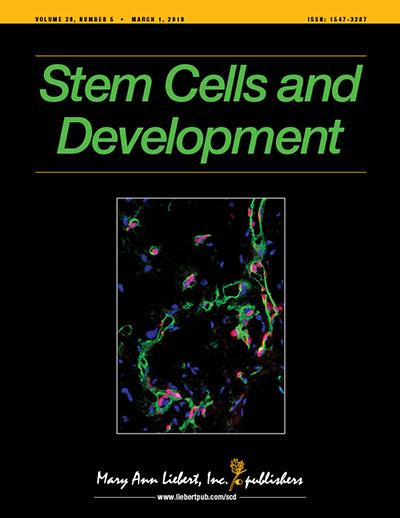
Credit: Mary Ann Liebert, Inc., publishers
New Rochelle, NY, March 4, 2019-A new study reveals that the multipotent stromal cells (MSCs) of persons with diabetes have diminished capacity to fight off bacterial infection, providing new understanding into the basis of diabetes-associated immune dysfunction. The research is published in Stem Cells and Development, a peer-reviewed journal from Mary Ann Liebert, Inc., publishers. Click here to read the article free on and Stem Cells and Development website through April 4, 2019.
Zijun Zhang and colleagues from the Orthobiologic Laboratory at MedStar Union Memorial Hospital, Baltimore, MD, present their work in an article titled “Compromised Antibacterial Function of Multipotent Stromal Cells in Diabetes”. To identify this diminished antibacterial activity, the authors isolated MSCs from the bone marrow of diabetic and non-diabetic donors and tested the effects of the cells’ supernatants on bacterial growth. The authors also showed that the co-culture of diabetes-associated MSCs with macrophages inhibits bacterial phagocytosis, and additional experiments addressed the gene expression and cytokine production responsible for these effects.
“Given the proposed use of MSCs as a therapeutic strategy in the treatment of diabetes, the careful consideration of the implications of these data for this and other autoimmune disorders are highly recommended,” says Editor-in-Chief Graham C. Parker, PhD, The Carman and Ann Adams Department of Pediatrics, Wayne State University School of Medicine, Detroit, MI.
###
About the Journal
Stem Cells and Development is an authoritative peer-reviewed journal published 24 times per year in print and online. The Journal is dedicated to communication and objective analysis of developments in the biology, characteristics, and therapeutic utility of stem cells, especially those of the hematopoietic system. A complete table of contents and free sample issue may be viewed on the Stem Cells and Development website.
About the Publisher
Mary Ann Liebert, Inc., publishers is a privately held, fully integrated media company known for establishing authoritative peer-reviewed journals in many promising areas of science and biomedical research, including Cellular Reprogramming, Tissue Engineering, and Human Gene Therapy. Its biotechnology trade magazine, GEN (Genetic Engineering & Biotechnology News), was the first in its field and is today the industry’s most widely read publication worldwide. A complete list of the firm’s 80 journals, books, and newsmagazines is available on the Mary Ann Liebert, Inc., publishers website.
Media Contact
Kathryn Ryan
[email protected]
Original Source
https:/
Related Journal Article
http://dx.




